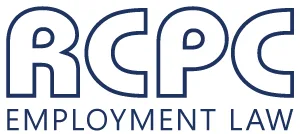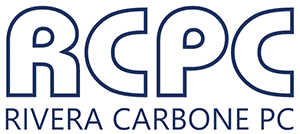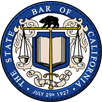The National Labor Relations Board announced on December 23, 2011, that it has postponed the implementation of the “employee rights notice-posting requirement” until April 30, 2012. The new poster is available from the Board’s website in English, Spanish, Albanian, Amharic, Arabic, Bengali, Bosnian, Portuguese, Chinese, Farsi, French, Creole, Hindi, Italian, Japanese, Korean, Lao, Pashto, Polish, Russian, Samoan, Somali, Thai, Urdu and Vietnamese, which looks like this:
Employee Rights
Under the National Labor Relations Act
The National Labor Relations Act (NLRA) guarantees the right of employees to organize and bargain collectively with their
employers, and to engage in other protected concerted activity or to refrain from engaging in any of the above activity. Employees
covered by the NLRA* are protected from certain types of employer and union misconduct. This Notice gives you general information
about your rights, and about the obligations of employers and unions under the NLRA. Contact the National Labor Relations Board
(NLRB), the Federal agency that investigates and resolves complaints under the NLRA, using the contact information supplied
below, if you have any questions about specific rights that may apply in your particular workplace.
Under the NLRA, you have the right to:
• Organize a union to negotiate with your employer concerning your wages, hours, and other terms and conditions
of employment.
• Form, join or assist a union.
• Bargain collectively through representatives of employees’ own choosing for a contract with your employer setting your wages,
benefits, hours, and other working conditions.
• Discuss your wages and benefits and other terms and conditions of employment or union organizing with your co-workers
or a union.
• Take action with one or more co-workers to improve your working conditions by, among other means, raising work-related
complaints directly with your employer or with a government agency, and seeking help from a union.
• Strike and picket, depending on the purpose or means of the strike or the picketing.
• Choose not to do any of these activities, including joining or remaining a member of a union.
Illegal conduct will not be permitted. If you believe your rights or the rights of others have been violated, you should contact the
NLRB promptly to protect your rights, generally within six months of the unlawful activity. You may inquire about possible violations
without your employer or anyone else being informed of the inquiry. Charges may be filed by any person and need not be filed by
the employee directly affected by the violation. The NLRB may order an employer to rehire a worker fired in violation of the law and
to pay lost wages and benefits, and may order an employer or union to cease violating the law. Employees should seek assistance
from the nearest regional NLRB office, which can be found on the Agency’s Web site: http://www.nlrb.gov.
You can also contact the NLRB by calling toll-free: 1-866-667-NLRB (6572) or (TTY) 1-866-315-NLRB (1-866-315-6572)
for hearing impaired.
If you do not speak or understand English well, you may obtain a translation of this notice from the NLRB’s Web site or by calling
the toll-free numbers listed above.
Under the NLRA, it is illegal for your employer to:
• Prohibit you from talking about or soliciting for a union
during non-work time, such as before or after work or
during break times; or from distributing union literature
during non-work time, in non-work areas, such as parking
lots or break rooms.
• Question you about your union support or activities in a
manner that discourages you from engaging in that activity.
• Fire, demote, or transfer you, or reduce your hours or
change your shift, or otherwise take adverse action against
you, or threaten to take any of these actions, because
you join or support a union, or because you engage
in concerted activity for mutual aid and protection, or
because you choose not to engage in any such activity.
• Threaten to close your workplace if workers choose a
union to represent them.
• Promise or grant promotions, pay raises, or other benefits
to discourage or encourage union support.
• Prohibit you from wearing union hats, buttons, t-shirts, and
pins in the workplace except under special circumstances.
• Spy on or videotape peaceful union activities and
gatherings or pretend to do so.
Under the NLRA, it is illegal for a union or for the
union that represents you in bargaining with your
employer to:
• Threaten or coerce you in order to gain your support
for the union.
• Refuse to process a grievance because you have
criticized union officials or because you are not a
member of the union.
• Use or maintain discriminatory standards or procedures
in making job referrals from a hiring hall.
• Cause or attempt to cause an employer to discriminate
against you because of your union-related activity.
• Take adverse action against you because you have not
joined or do not support the union.
If you and your co-workers select a union to act as your
collective bargaining representative, your employer
and the union are required to bargain in good faith in
a genuine effort to reach a written, binding agreement
setting your terms and conditions of employment. The
union is required to fairly represent you in bargaining
and enforcing the agreement.
* The National Labor Relations Act covers most private-sector employers. Excluded from coverage under the NLRA are public-sector employees, agricultural
and domestic workers, independent contractors, workers employed by a parent or spouse, employees of air and rail carriers covered by the Railway Labor
Act, and supervisors (although supervisors that have been discriminated against for refusing to violate the NLRA may be covered).
This is an official Government Notice and must not be defaced by anyone.
September 2011








